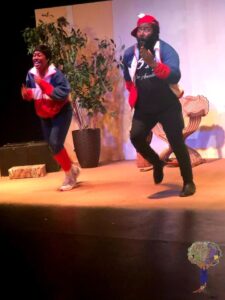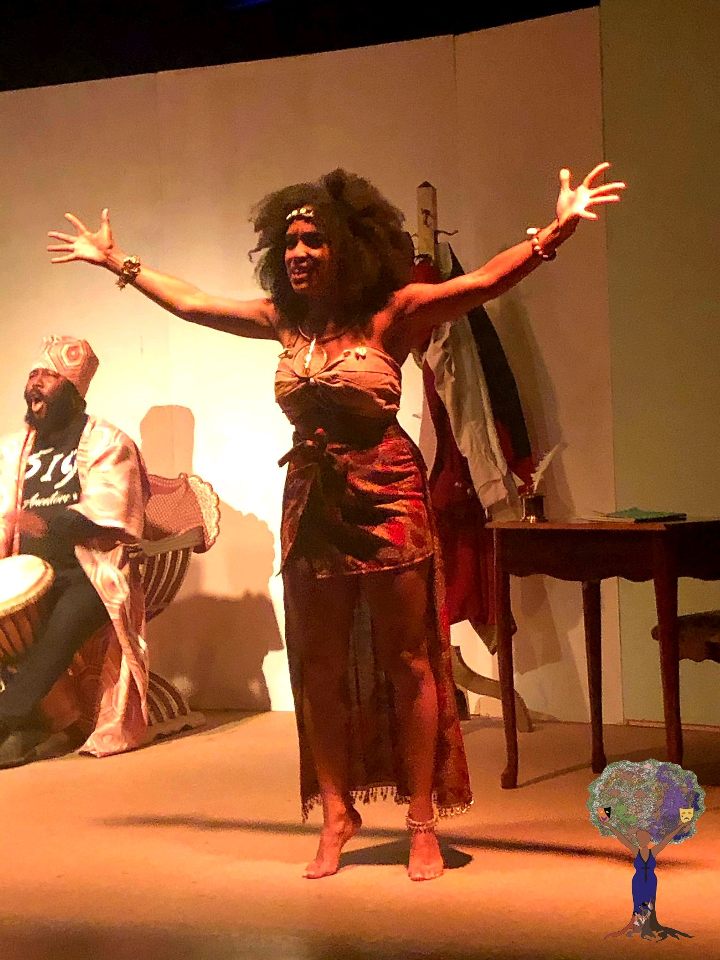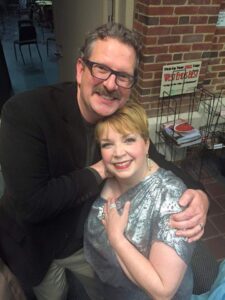“The doctors told me I would never walk again. My mother told me I would. I believed my mother.” This line, spoken by actress Shalandis Wheeler Smith, wraps the audience of Heritage Ensemble’s production of What They Did For Us in a powerful, universal experience. Smith portrays sprinter Wilma Rudolph, one of the four ground-breaking black women whose story is told in this new play written and directed by Richmond local, Margarette Joyner.
The play begins with a spotlight illuminating “Everyman” Jeremy Morris on African drums. To his steady beat, we see tableaus of the four actresses setting up the rest of the play. Despite a set that consists solely of a plain black background with props, the opening builds excitement for the first scene. In this scene, Queen N’Zinga (Marjie Southerland) extols the story of her difficult life. Southerland has an effortless way of dancing around the stage, chanting with the rhythms of a ruler and lowering her voice to make the audience listen solemnly.
In the second scene, Rickaya Sykes perfectly embodies Phillis Wheatley, the first black author to publish a book of poetry, with her timing and mannerisms. Although the costumes (like Morris’ colonial wig) look low-budget, this doesn’t inhibit enjoyment of this scene. In the next, DejaMone Jones recounts her military escapades as Cathay Williams, a black woman who pretended to be a man to enlist in the army. Jones took on a mellow, world-wise way of speaking that convincingly transformed her into the ex-soldier and accurately represented her time period.

But Wheeler Smith increased the energy in the house tenfold with her closing performance. She had the audience repeat lines back to her as she moved all over the stage, pantomiming to show us how she used to move when she was injured. When she took her final bow, all eight of the audience members were on our feet, many of us with tears in our eyes and smiles behind our masks.
The play had relatively few technical elements, which included some audio recordings and light changes. However, these few cues were timed perfectly and the sound quality in the theatre was excellent. In this way, the lights and sound helped to create the environment that was left to the imagination by a lackluster set.
Because of the pandemic, live theatre isn’t what it used to be. A Triangle Players employee takes temperatures at the door, and the few available seats were staggered in an effort to social-distance. Unfortunately, the seats were hardly six feet apart so watchers had to be wary of unmasking to enjoy their drinks. However, the overall experience of sitting in the theatre is safe and the staff are very professional.
Overall, Heritage Ensemble’s performance of What They Did for Us is both inspiring and humbling. It was performed on the Richmond Triangle Players stage but there are no remaining live performances scheduled. Online streaming options will be announced soon.



